How the Euros could change the result of the election
Harold Wilson said England only ever win a World Cup under a Labour leader, meanwhile a pollster has found that the shirt colour of the winning cup final team is a precise an indicator of who will succeed at the ballot box. Jim White reads the runes and asks: is Rishi’s election timing an own goal – or a win?

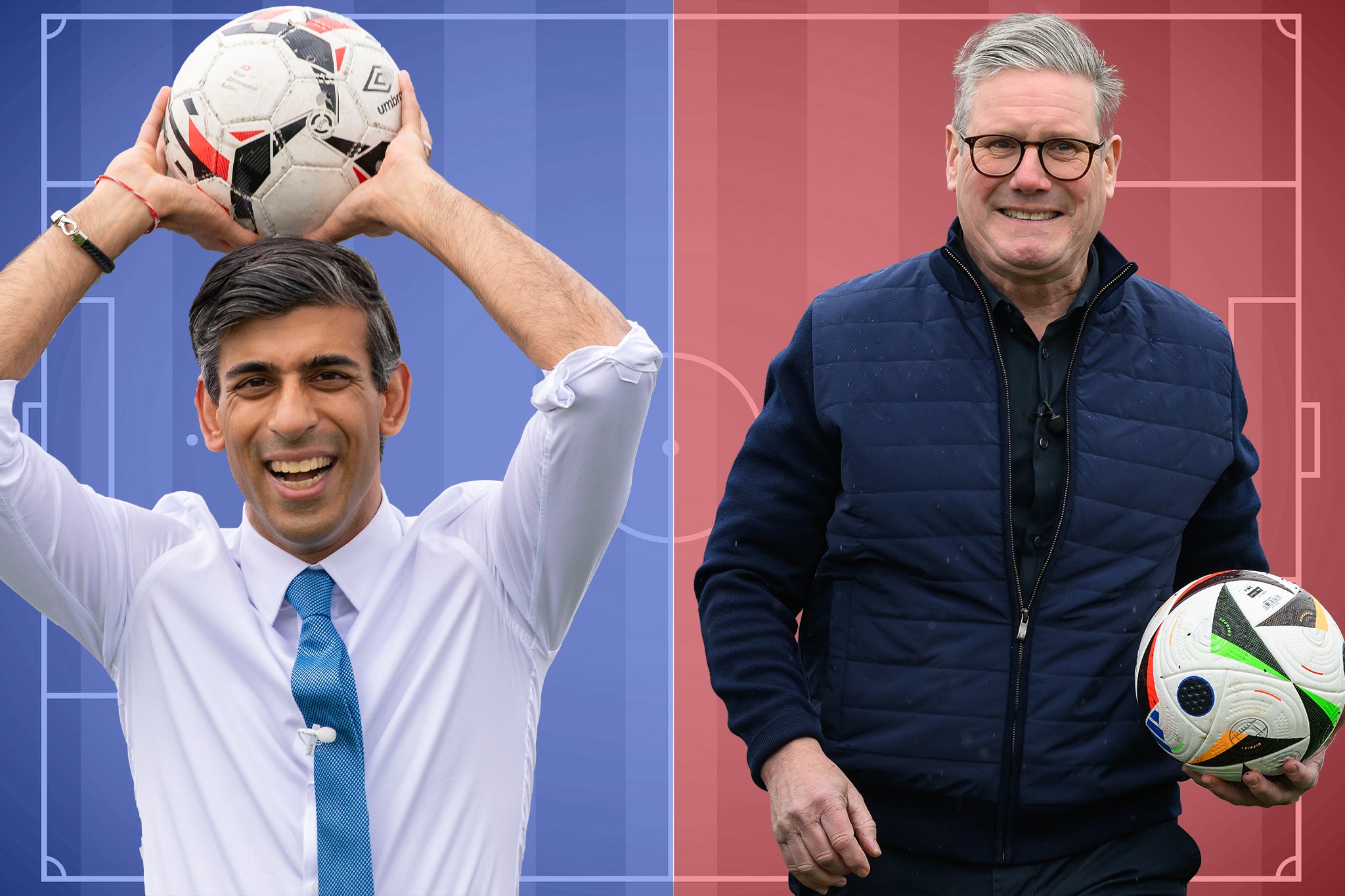
One of the first mishaps Rishi Sunak made on the election trail was tripping over a traffic cone. He was at Chesham United Football Club in Buckinghamshire, gamely taking part in a training session with a bunch of junior players. It was pretty clear from his attempts to kick a ball in a straight line that none of football’s leading scouts would have been too upset at their failure to sign up a generational talent. But proficiency – or rather complete lack of it – was not the point.
Sunak was there to deliver an indicator of something else: his ordinariness. He was there failing to run with a ball at his feet to show the electorate that, whatever the assumptions of wealth and privilege that cling to him, he is just like us. But like the comment about his parents not being able to afford Sky TV when he was younger, it was an own goal.
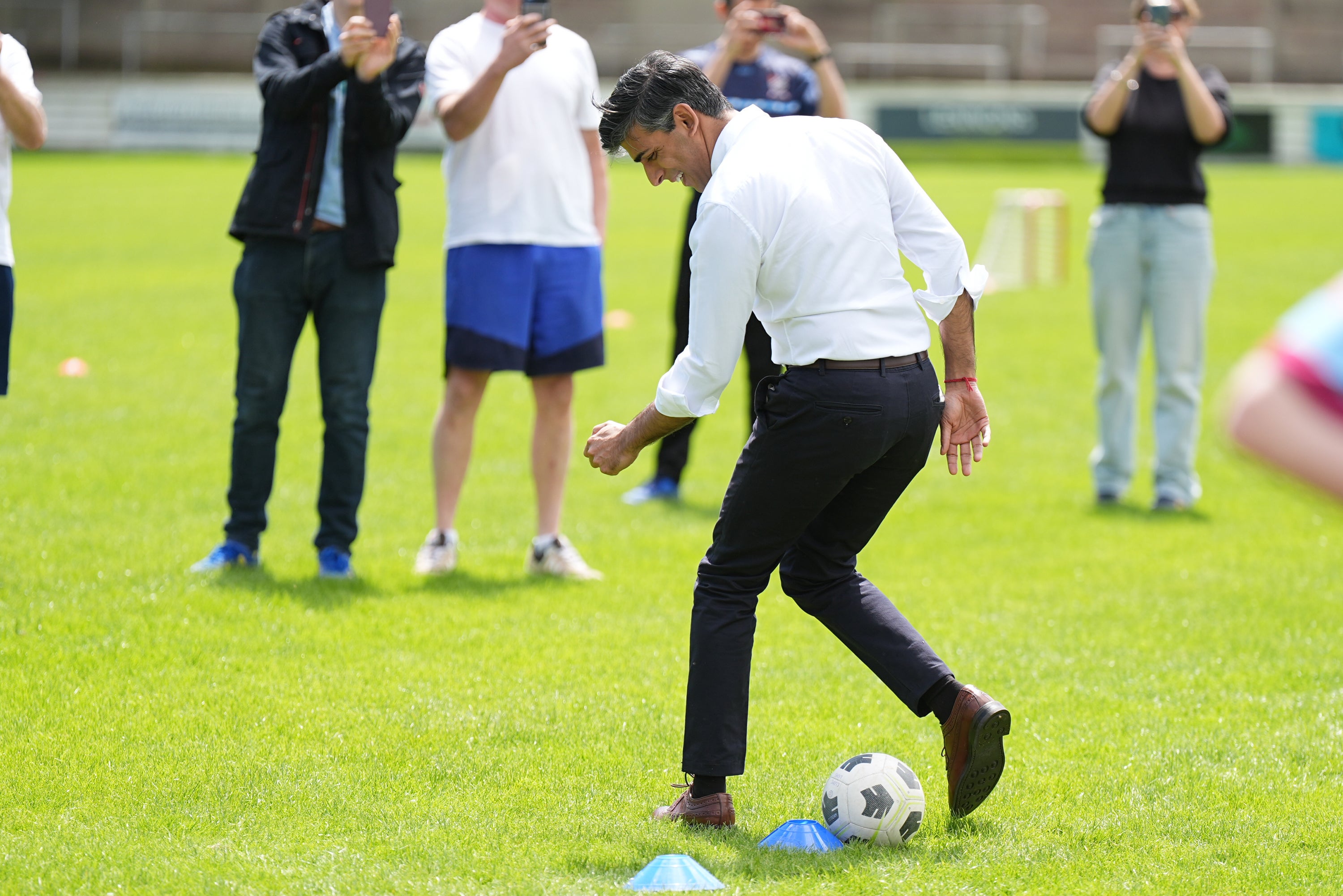
For men in politics, there is reckoned no more efficient way to signal ordinariness than to advertise an understanding of the importance of football. Which is why Rishi’s advisers ensured he was photographed in the stands at Southampton FC when they played in the recent Championship play-offs. Not in the directors’ box, he was among the people, a regular fan you see.
His opponent Sir Keir Starmer is no different. The Labour leader, who enjoys donning an England shirt while watching international games, likes it to be known that he plays five-a-side every week with a bunch of mates. Though, perhaps wisely, he is less inclined than the prime minister to invite the cameras along. And just before the election was called, he gave an extensive interview to the Daily Telegraph not about policy or political philosophy, but about his lifelong affiliation with Arsenal. He has a season ticket at the Emirates and jokes that support for the club is one of the few things on which he and his predecessor Jeremy Corbyn could wholeheartedly agree.
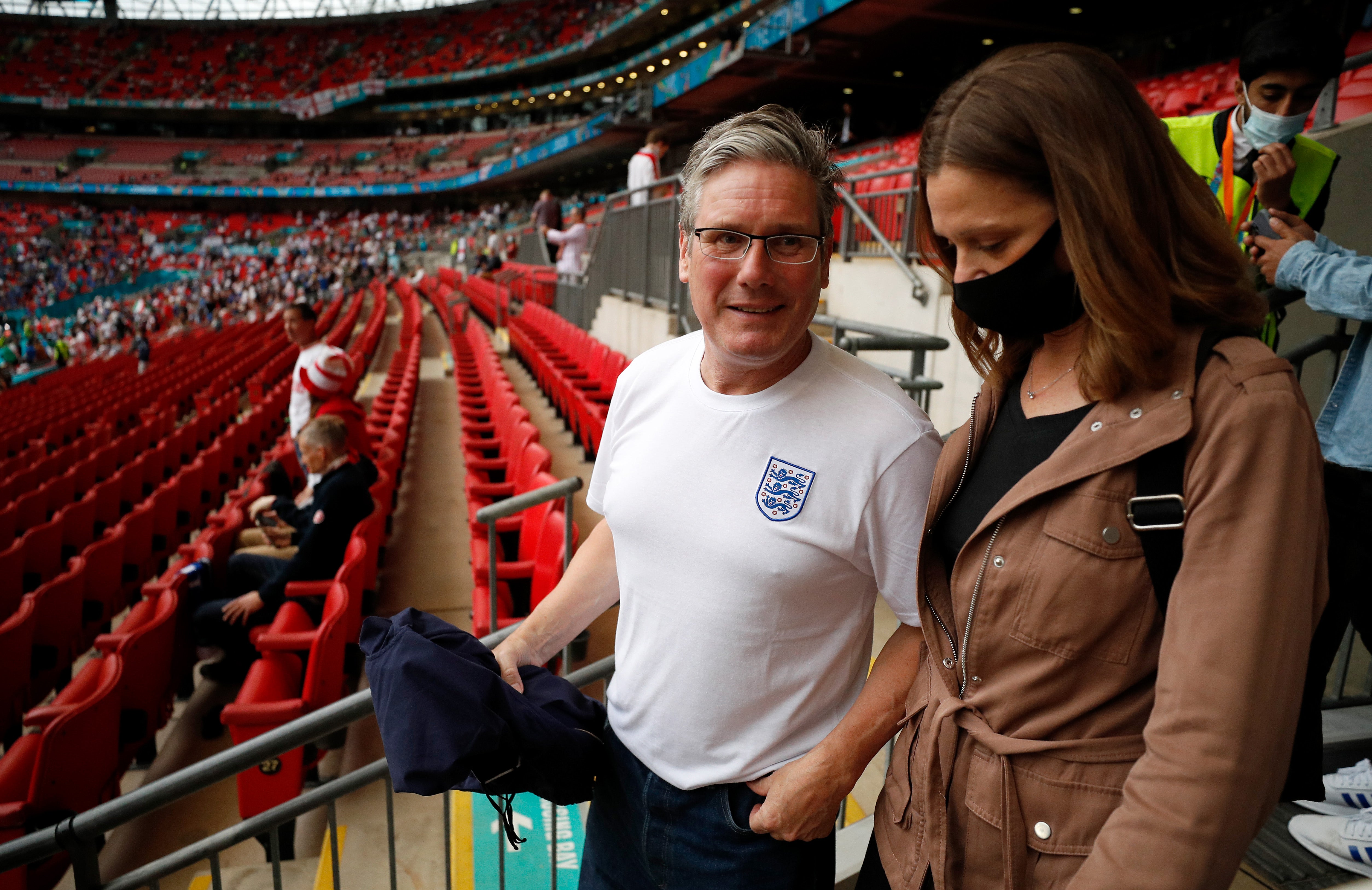
The first televised debate of this election campaign with Julie Etchingham concluded with a question about football: what advice would they give Gareth Southgate ahead of the Euros? Both men wanted to prove their knowledge of the game, both wanted to advertise that they had personally met Gareth, as they called him, several times. And both tried to turn the question back on to their election messages – Sunak talked about the England manager needing a clear plan, Starmer about the need for a strategy designed to win.
Not that it was always like this in British politics. During the 1980s, Margaret Thatcher would be driven into a state of foaming fury if any members of her cabinet even mentioned the f-word. She thought football was an aberration, a sore on society, its supporters the enemy within. For Tory grandees like David Mellor (Chelsea football shirt, ahem) and Ken Clarke, who both had a lifelong interest in the game, this made small talk tricky. Ahead of cabinet meetings, they were obliged to suppress their natural urge to pepper their conversation with football chat, then arrange to meet somewhere private afterwards so they could exchange pressing gossip about the game.
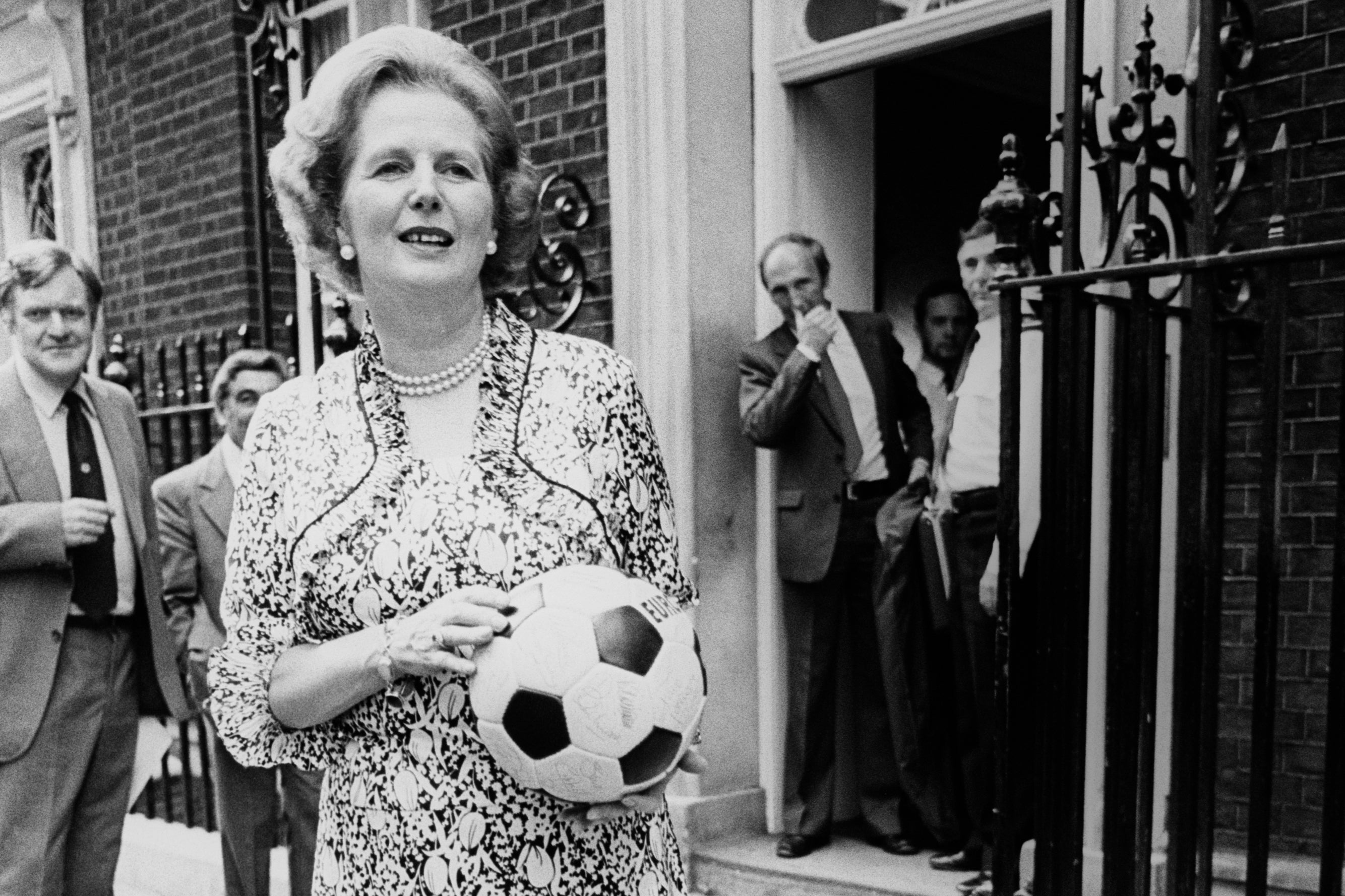
Things changed in the mid-Nineties. By then, governments across the world were beginning to recognise the powerful surge in the national mood that came from staging – and winning – football tournaments. I remember, the moment the final whistle blew in the Stade de France signalling that France had won their 1998 World Cup semi-final against Croatia, seeing president Jacques Chirac ferociously elbow his way to where the nearest television camera was stationed, desperate to bask in reflected glory.
In Britain, strategists behind New Labour were keen to position Tony Blair as a football man. Alastair Campbell, a passionate Burnley supporter, recognised the electoral benefit of Blair presenting himself as a fan. The trouble is, football fandom is not something that can be easily faked. Blair’s claim that he remembered watching Newcastle United from his seat in the Gallowgate End at St James’s Park was duly exposed by those pointing out that when he was young, that particular part of the ground was an all-standing terrace.
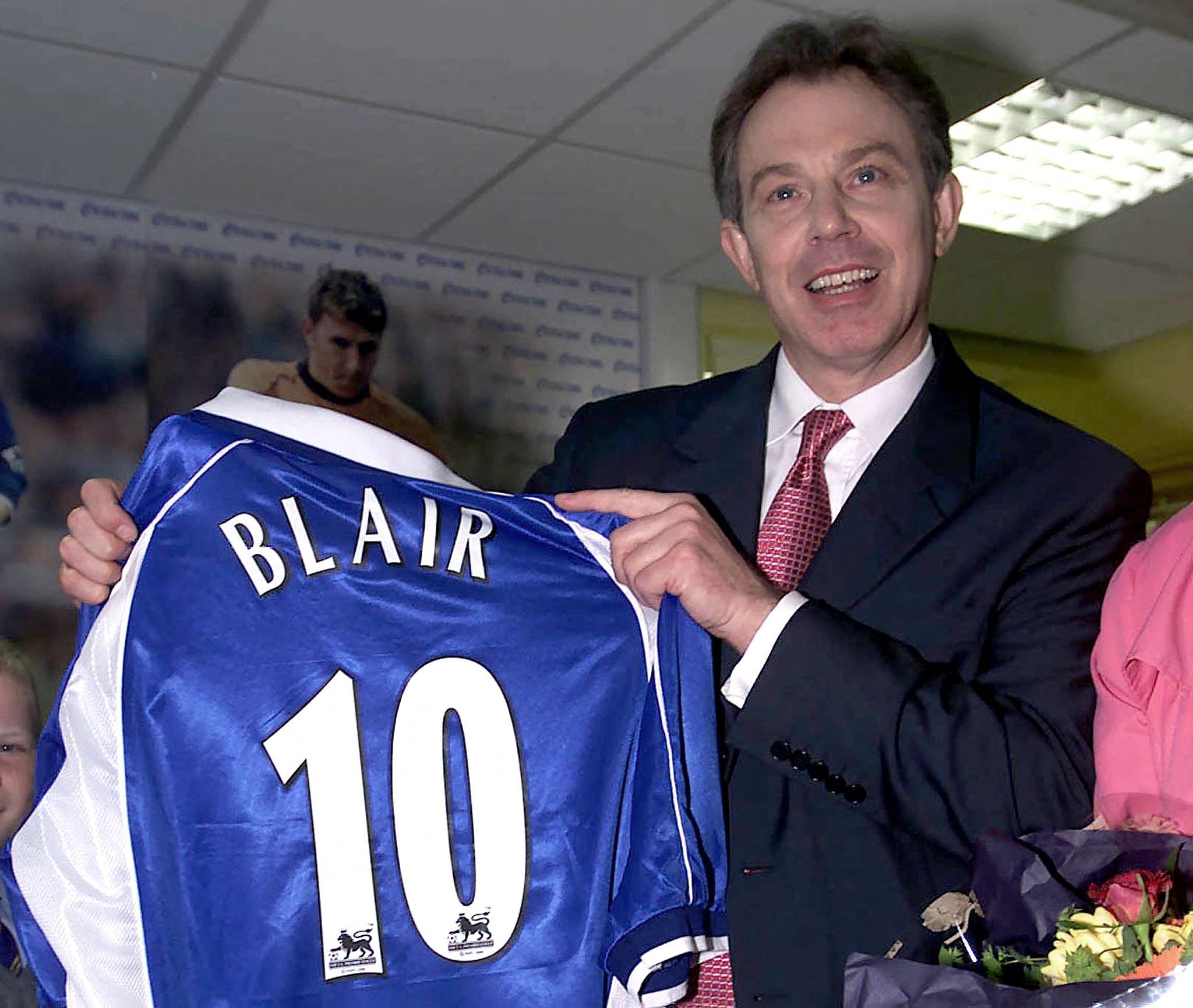
When Gordon Brown took over at No 10, one of the first things he did was to invite football correspondents around for a reception, where he boldly demonstrated that, unlike his predecessor, he was a proper fan. Everyone came away from that evening astonished by the extent of the PM’s nerd-like enthusiasm. Albeit that, as a lover of Raith Rovers FC, his knowledge was largely restricted to the Scottish lower leagues.
When David Cameron was elected in 2010, he too liked to talk about his fondness for the game. For him it was in the family: his uncle had been chairman of Aston Villa. Though, comically, once in a speech he managed somehow to get his claret and blue heritage mixed up by declaring undying love for West Ham. Significantly, he tried to go one better than Blair, who had successfully helped bring the Olympics to London, by taking control of a bid to stage the 2018 World Cup in England. He and fellow Villa fan Prince William, accompanied by David Beckham, went to the final day of Fifa decision-making in Zurich to lobby for the home of the Three Lions. Unfortunately, Cameron’s hoped-for reputation for competence and persuasiveness was challenged when the bid was won by Russia and it emerged that his team had managed to convince just one delegate to back an English bid.
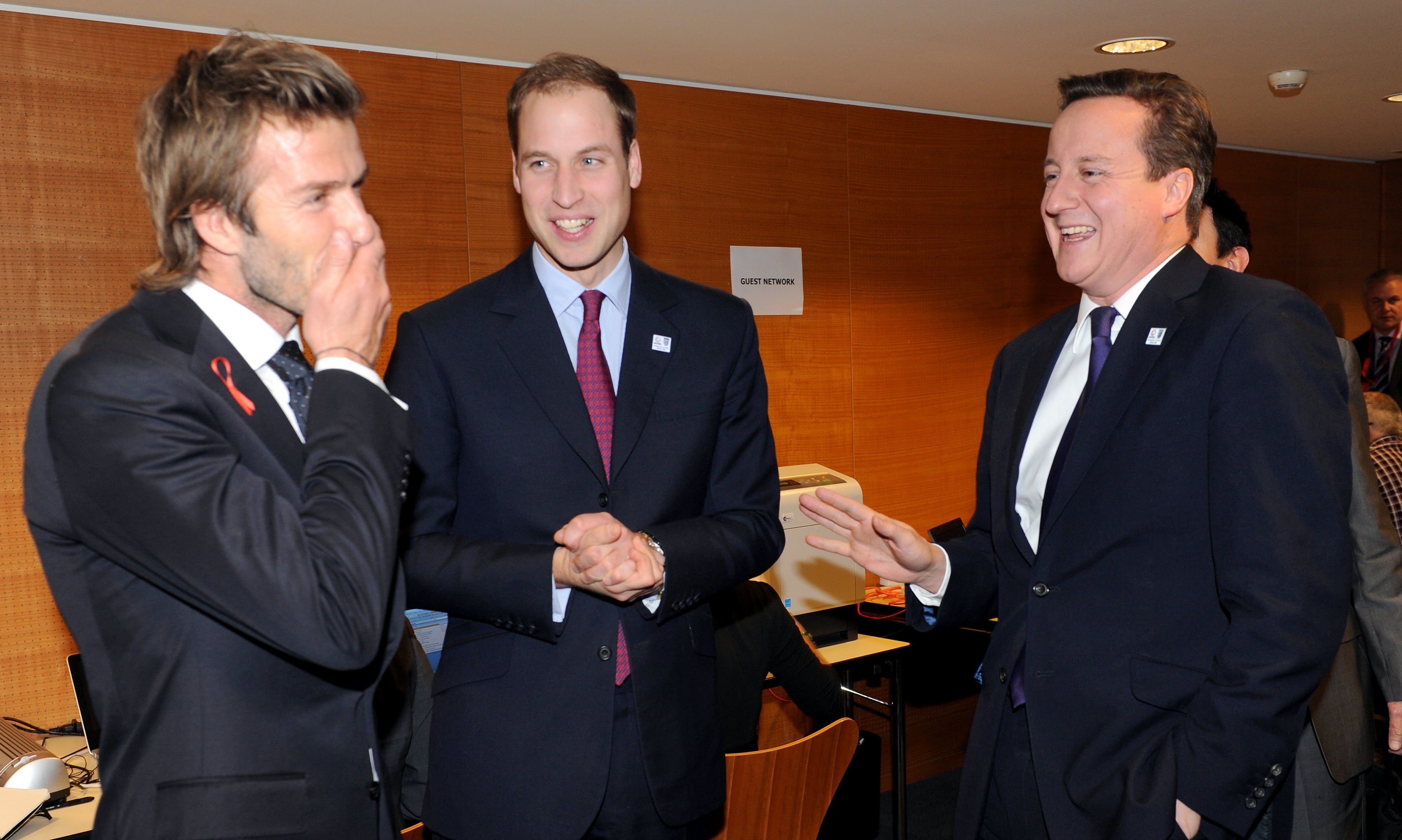
By 2021, however, the covid-delayed European Championship final was actually played at Wembley. More to the point, England were in it. The then PM Boris Johnson – whose understanding of the game was rather exposed when, within moments of coming onto the field in a charity game, he rugby tackled a German opponent – had put in place arrangements to announce a bank holiday in celebration. We never got to enjoy that day off: England lost on penalties to Italy.
Three years on, with Johnson now spending more time with his memoirs, his successor plus one, Sunak, has gone one step further. And has taken a lead from an unexpected predecessor.
In much the same manner as French president Emmanuel Macron, whose look-at-me antics at the last World Cup reached comedic levels, Harold Wilson was never afraid to extract all the positives he could from footballing success. He won a landslide election in March 1966, so was able later that year to lay claim for responsibility for a home triumph in the World Cup.
“Have you ever noticed,” he opined in his leader’s speech to his party conference in the autumn of 1966, “that England only ever win the World Cup under a Labour government?”
In 1970, he called a general election which coincided with England’s defence of their trophy in Mexico. His timing appeared to be typical of his political nous. After doing well in the May local elections, Labour held a 7.5-point lead in the polls; more to the point, many an observer reckoned that Alf Ramsey’s England team heading across the Atlantic was tactically superior to the one that had lifted the trophy four years earlier; here was the chance once more to link to international triumph.
Like Wilson’s, Sunak’s timing was deliberate. He called this election on 4 July, with Gareth Southgate’s England likely to be playing a last 16-round knockout game a couple of days before. His hope is, should Harry Kane, Jude Bellingham and co still be on course for ultimate triumph, the enhanced national mood may help him. He has a point. In 2010, researchers at Stanford University reckoned that a national side winning 10 days before an election garnered incumbent politicians an extra 1.61 per cent of the vote. And for a leader as embattled as Sunak, every little helps.
But maybe the PM should have studied his history a little closer. If Wilson had reckoned that he could ride a wave of patriotic fervour by calling an election in the midst of the football, he was quickly disabused. Four days after England threw away a two-goal lead in the quarter-final against West Germany, Wilson lost to the Conservatives, led by Edward Heath, not a man renowned for his affection for the game.
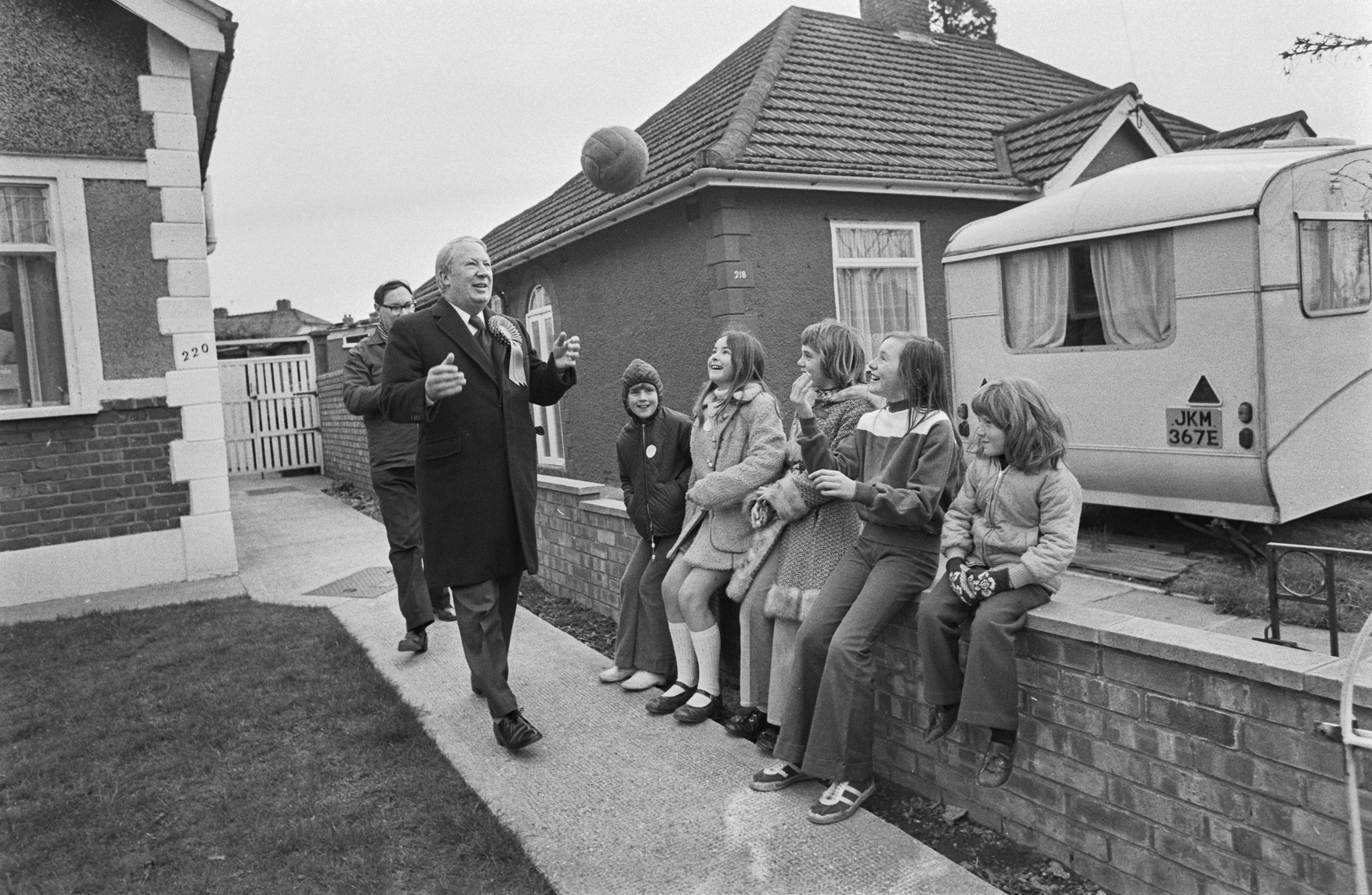
While Wilson was adamant he had made no attempt to cash in – “governance of a country has nothing to do with a study of its football fixtures”, he fumed – there were plenty of pundits who saw a connection between the two results.
England’s World Cup failure was reckoned by many a voter to be symptomatic of a nation in decline; Wilson was blamed as much as Ramsey. Tony Crosland, who had lost his job as local government minister in the election defeat, wrote in his diary that Labour’s misery at the polls was due to “the disgruntled Match of the Day millions”.
So when it comes to football, Rishi may be wise to read the runes. Two days into this campaign, Manchester United beat Manchester City in the FA Cup final. Pollster Professor Roger Mortimer has discovered that the shirt colour of the team that wins the Cup final is as precise an indicator of who will win an election as any. In 15 of the 20 elections since 1950, if a team in blue won the Cup that year it mirrored Tory success, red and it was Labour. And in 2024, the reds triumphed over the blues.






Join our commenting forum
Join thought-provoking conversations, follow other Independent readers and see their replies
Comments